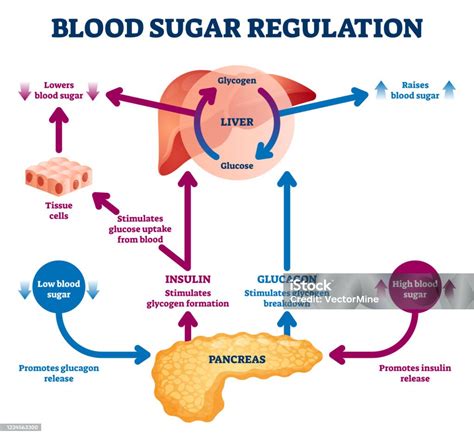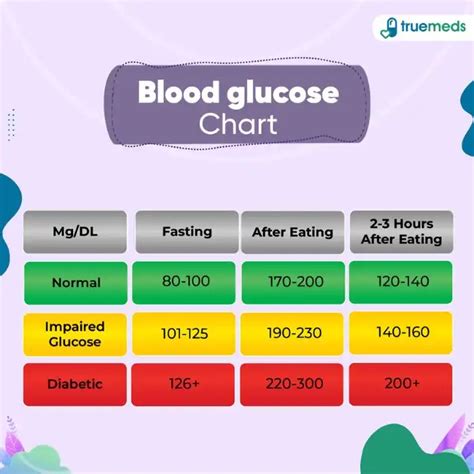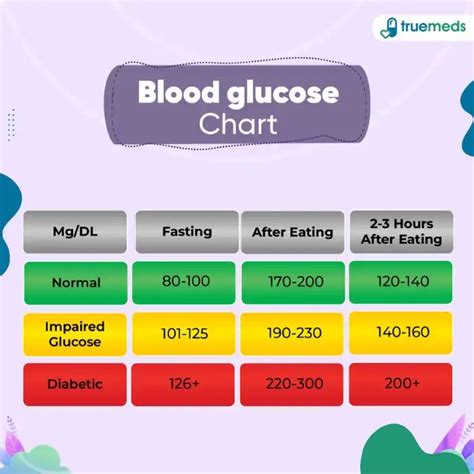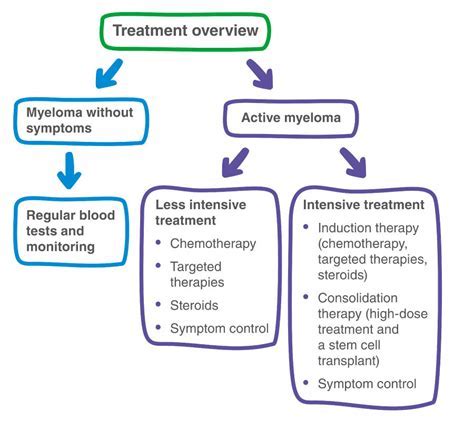Intro
Learn about normal glucose levels, blood sugar ranges, and ideal targets for a healthy diet, understanding glucose monitoring, and managing diabetes with optimal glucose control and stable blood glucose levels.
Maintaining normal glucose levels is crucial for overall health and well-being. Glucose, a type of sugar, is the primary source of energy for the body's cells. The body regulates glucose levels through a complex process involving the pancreas, liver, and hormones such as insulin and glucagon. Understanding normal glucose levels is essential for preventing and managing conditions like diabetes, which affects millions of people worldwide. In this article, we will delve into the importance of normal glucose levels, how they are regulated, and what factors can affect them.
The human body is designed to maintain a delicate balance of glucose levels within a specific range. When we eat, our body breaks down carbohydrates into glucose, which is then absorbed into the bloodstream. The pancreas releases insulin to facilitate the entry of glucose into cells, where it is used for energy production. In between meals, the liver releases stored glucose (glycogen) into the bloodstream to maintain energy levels. This intricate process ensures that our cells receive a constant supply of energy while preventing glucose levels from becoming too high or too low.
Normal glucose levels are essential for maintaining proper bodily functions, including nerve function, digestive health, and energy production. Abnormal glucose levels, on the other hand, can lead to a range of health problems, from mild symptoms like fatigue and blurred vision to severe complications like organ damage and increased risk of infections. As such, it is vital to understand what constitutes normal glucose levels and how to maintain them through a healthy lifestyle and, if necessary, medical interventions.
Understanding Glucose Regulation

Glucose regulation is a complex process that involves multiple organs and hormones. The pancreas plays a central role in glucose regulation by producing insulin and glucagon, two hormones that have opposite effects on glucose levels. Insulin lowers glucose levels by facilitating the entry of glucose into cells, while glucagon raises glucose levels by stimulating the liver to release stored glucose into the bloodstream. The liver also plays a crucial role in glucose regulation by storing and releasing glucose as needed.
Factors Affecting Glucose Regulation
Several factors can affect glucose regulation, including diet, physical activity, stress, and certain medications. A diet high in refined carbohydrates and sugar can lead to elevated glucose levels, while regular physical activity can help improve insulin sensitivity and lower glucose levels. Stress can also affect glucose regulation by raising cortisol levels, which can contribute to insulin resistance. Certain medications, such as steroids and certain psychiatric medications, can also affect glucose regulation.Normal Glucose Levels: What Are They?

Normal glucose levels vary depending on the time of day, meal times, and individual factors such as age and physical activity level. Fasting glucose levels, which are measured after an overnight fast, are typically between 70 and 99 mg/dL. Postprandial glucose levels, which are measured after meals, are typically less than 140 mg/dL. The American Diabetes Association (ADA) recommends the following glucose targets:
- Fasting glucose: less than 100 mg/dL
- Postprandial glucose: less than 140 mg/dL
- A1c (average glucose levels over 2-3 months): less than 5.7%
Measuring Glucose Levels
Glucose levels can be measured using a variety of methods, including: * Fasting plasma glucose (FPG) test: measures glucose levels after an overnight fast * Oral glucose tolerance test (OGTT): measures glucose levels after consuming a sugary drink * A1c test: measures average glucose levels over 2-3 months * Continuous glucose monitoring (CGM): measures glucose levels throughout the day using a small sensor inserted under the skinMaintaining Normal Glucose Levels

Maintaining normal glucose levels requires a combination of healthy lifestyle habits and, if necessary, medical interventions. Here are some tips for maintaining normal glucose levels:
- Eat a balanced diet that is low in refined carbohydrates and sugar
- Engage in regular physical activity, such as walking or jogging
- Get enough sleep (7-8 hours per night)
- Manage stress through techniques such as meditation or yoga
- Monitor glucose levels regularly using a glucose meter or CGM
- Take medications as prescribed by your healthcare provider
Complications of Abnormal Glucose Levels
Abnormal glucose levels can lead to a range of complications, including: * Nerve damage (neuropathy) * Kidney damage (nephropathy) * Eye damage (retinopathy) * Foot damage (ulcers, amputations) * Increased risk of infections * Cognitive impairmentDiagnosis and Treatment of Abnormal Glucose Levels

Abnormal glucose levels can be diagnosed using a variety of tests, including FPG, OGTT, and A1c tests. Treatment for abnormal glucose levels depends on the underlying cause and may include:
- Lifestyle modifications, such as diet and exercise
- Medications, such as metformin or insulin
- Monitoring glucose levels regularly
- Regular check-ups with your healthcare provider
Prevention of Abnormal Glucose Levels
Preventing abnormal glucose levels requires a combination of healthy lifestyle habits and regular monitoring. Here are some tips for preventing abnormal glucose levels: * Eat a balanced diet that is low in refined carbohydrates and sugar * Engage in regular physical activity * Get enough sleep * Manage stress * Monitor glucose levels regularly * Get regular check-ups with your healthcare providerConclusion and Next Steps

In conclusion, maintaining normal glucose levels is crucial for overall health and well-being. By understanding how glucose regulation works, what constitutes normal glucose levels, and how to maintain them, individuals can take steps to prevent and manage conditions like diabetes. If you have concerns about your glucose levels or are experiencing symptoms of abnormal glucose levels, consult with your healthcare provider for personalized advice and treatment.
What are normal glucose levels?
+Normal glucose levels vary depending on the time of day, meal times, and individual factors such as age and physical activity level. Fasting glucose levels are typically between 70 and 99 mg/dL, while postprandial glucose levels are typically less than 140 mg/dL.
How can I maintain normal glucose levels?
+Maintaining normal glucose levels requires a combination of healthy lifestyle habits, including eating a balanced diet, engaging in regular physical activity, getting enough sleep, managing stress, and monitoring glucose levels regularly.
What are the complications of abnormal glucose levels?
+Abnormal glucose levels can lead to a range of complications, including nerve damage, kidney damage, eye damage, foot damage, increased risk of infections, and cognitive impairment.
How are abnormal glucose levels diagnosed?
+Abnormal glucose levels can be diagnosed using a variety of tests, including fasting plasma glucose (FPG) tests, oral glucose tolerance tests (OGTT), and A1c tests.
What is the treatment for abnormal glucose levels?
+Treatment for abnormal glucose levels depends on the underlying cause and may include lifestyle modifications, medications, monitoring glucose levels regularly, and regular check-ups with your healthcare provider.
We hope this article has provided you with a comprehensive understanding of normal glucose levels and their importance for overall health and well-being. If you have any further questions or concerns, please don't hesitate to reach out to your healthcare provider or leave a comment below. Share this article with your friends and family to help spread awareness about the importance of maintaining normal glucose levels.
